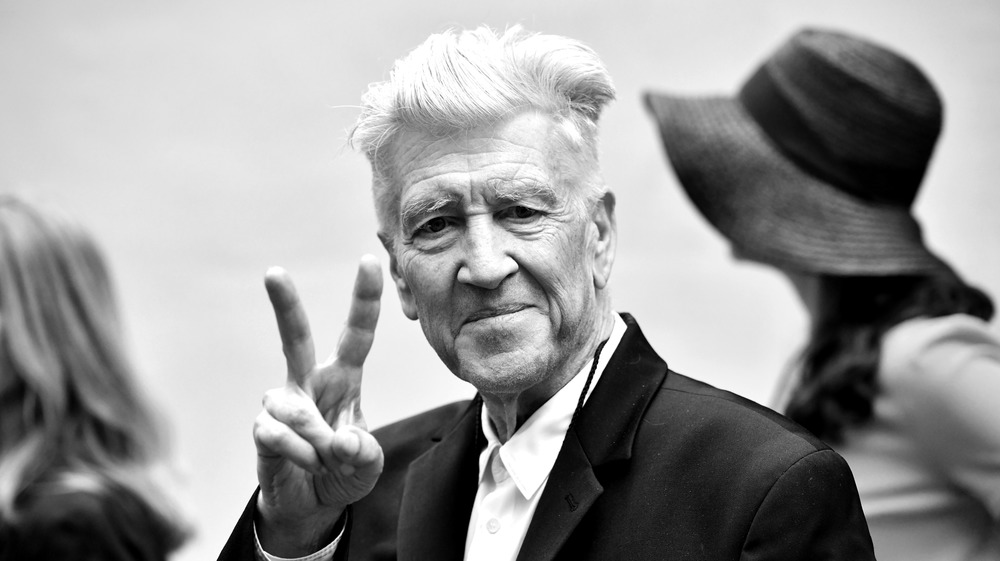The Odd Inspiration Behind David Lynch's Lost Highway
David Lynch is doubtlessly one of the most unique, inspired, visionary, and yes, stunningly coifed film writers and directors of our age. Lynch has put his surreal, uncanny, disturbing abstractions to work in famed TV shows such as Twin Peaks and its 25-year-subsequent successor Twin Peaks: The Return, jarring films such as Eraserhead (1977), Blue Velvet (1986), Mulholland Drive (2001), and Inland Empire (2006), and unnerving, head-scratching shorts like 2002's Rabbits. While some of us may wish to wade willingly into the Lynchian depths of the auteur creator's brain, others have only to look to the man's preoccupations to suss out his inspirations: cigarettes, obscene amounts of coffee, downtempo jazz fusion, transcendental meditation, and artistically crafted nude photography.
While David Lynch has always been open about his artistic processes, citing, among other things, the need to craft a proper space within which to be creative (per a 2020 interview on YouTube), it isn't always clear where he gets specific ideas from. Twin Peaks, for example, came from a still-unsolved 1908 murder discussed as recently as 2019 in the book Blonde, Beautiful and Dead, as The Hollywood Reporter tells us. In the case of films like Eraserhead, Lynch has never stated the inspiration, instead saying in 2014 that nobody had yet to provide "the interpretation that is my interpretation," per Esquire.
As for 1999's Lost Highway? Well, this particular film comes from a place much more literal and concrete, at least in part, than many of David Lynch's other works.
Based on a real-life event
When Lost Highway came out, David Lynch did an interview (available on YouTube) where he explained how the movie came about. Or at least he tried to explain, because he was unable to articulate many specifics. He said of his writing partner Barry Gilford, "I had some ideas, and he had some ideas, and I flew up to Berkeley... I told him my ideas, and he told me his ideas, and we both hated each other's ideas," continuing, "One thing led to another, and there was Lost Highway, the script." Lynch did recall the film's Mystery Man scene, where Bill Pullman's Fred Madison is at a party and meets a man who says he's "at his house." This was one of the lynchpin (hah) moments that the film's noir plot and unsettling happenings flowed from.
The City of Absurdity goes into further detail in another interview. Some of the ideas in Lost Highway came from actual visions that Lynch ascribes from his time working on 1992's Twin Peaks: Fire Walk with Me. The core conceit didn't come from a dream, though, but from real life, and happens in the movie itself at about the four-minute mark. Pullman's Madison, looking very Lynchian himself, is at home smoking a cigarette. He answers his intercom, and we're treated to the film's first dialogue, "Dick Laurent is dead."
As it turns out, this actually happened. Lynch answered his intercom, went to the window, looked out, and nobody was there.

